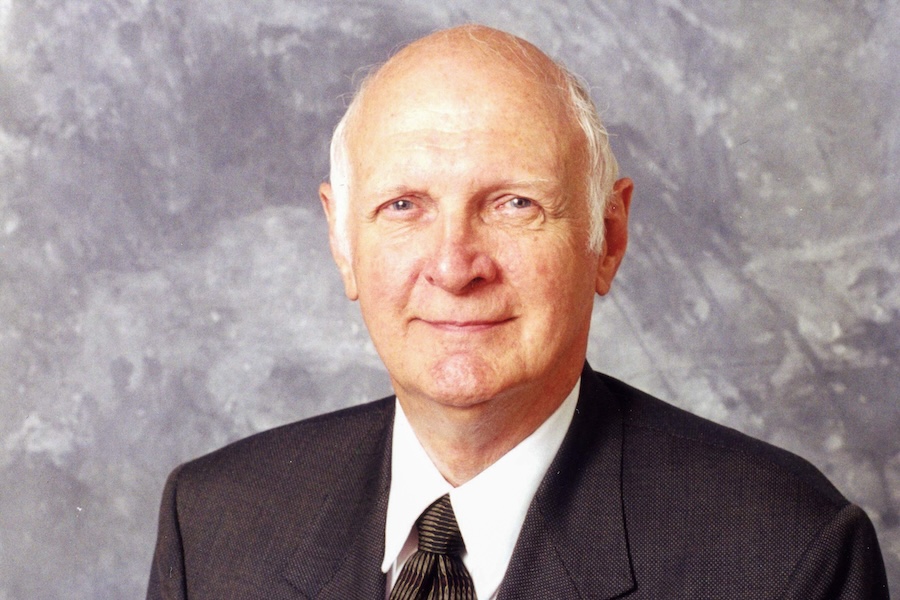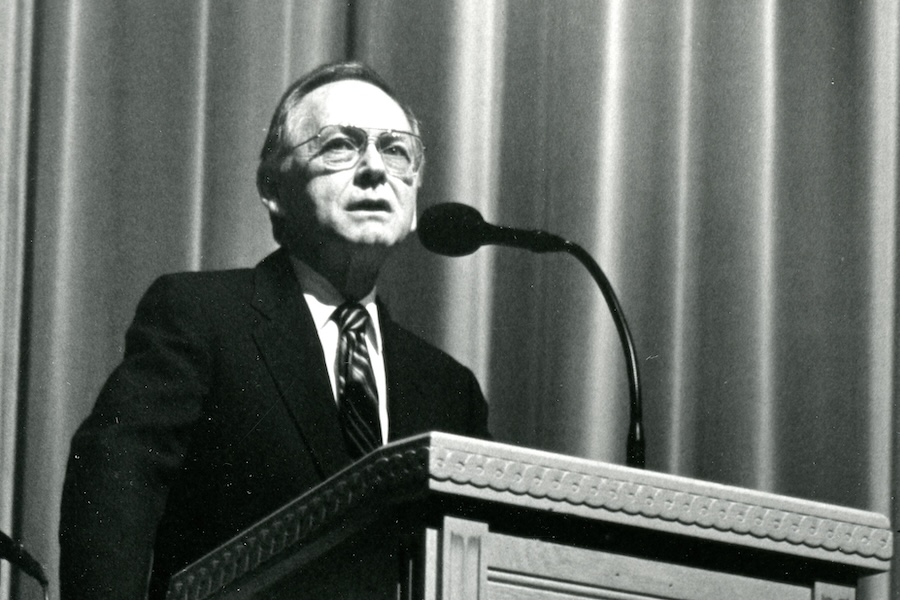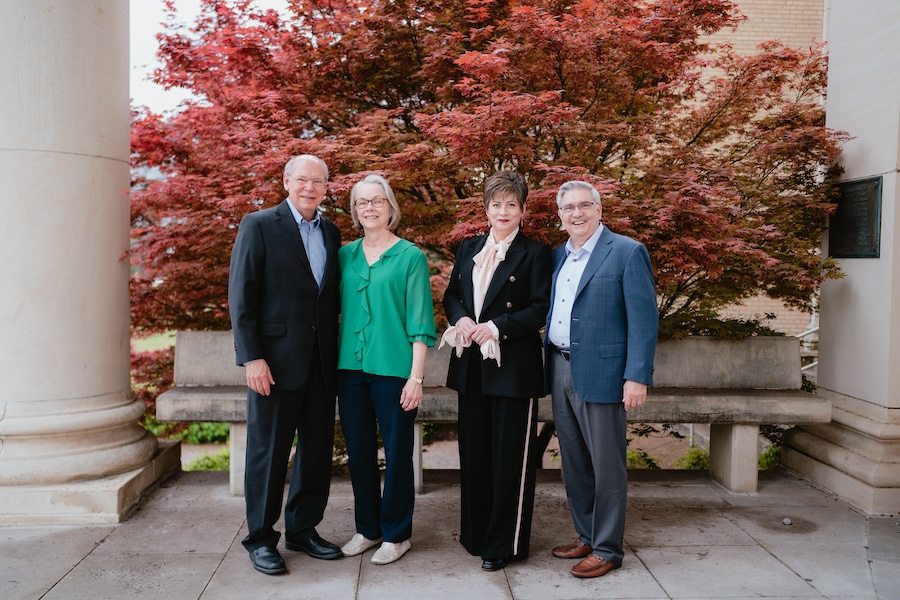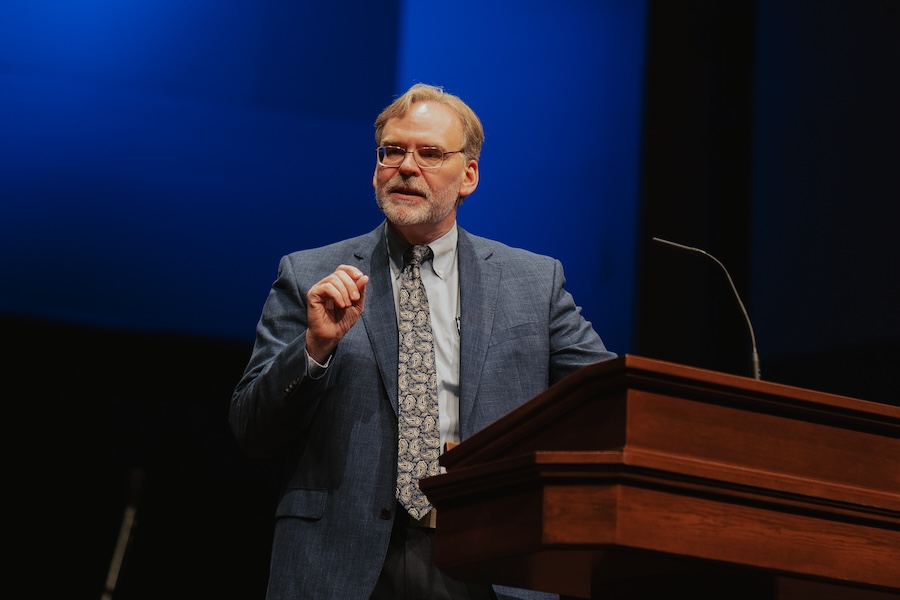Faculty, students represent Southwestern at annual ETS meeting
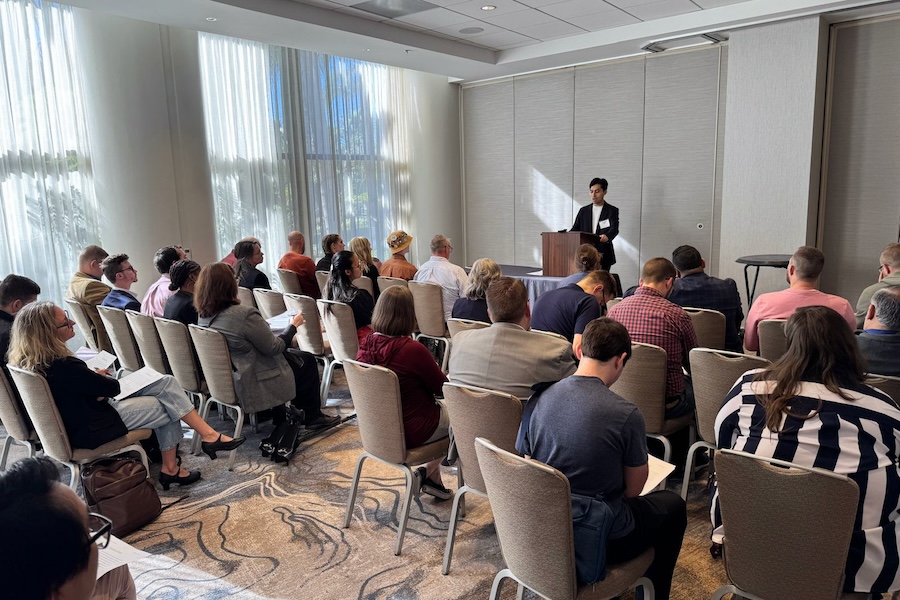
Southwestern Seminary faculty and doctoral students presented papers and moderated panel sessions during the 76th annual meeting of the Evangelical Theological Society (ETS), held Nov. 20-22, in San Diego, Calif. The theme of this year’s meeting was “Global Evangelicalism.”
“It is a genuine joy to see the number of Southwestern faculty, alumni, and doctoral students actively involved in this year’s program at the annual meeting of the Evangelical Theological Society,” said President David S. Dockery, who previously served as president of ETS. “The level of serious academic engagement that is reflected in their participation mirrors the quality of scholarship, teaching, and learning that takes place on the Southwestern campus day after day. These presentations at the annual meeting also provide an outstanding forum for others all across the evangelical community to see this commitment to Christ-centered excellence that carries on the best of the Southwestern heritage.”
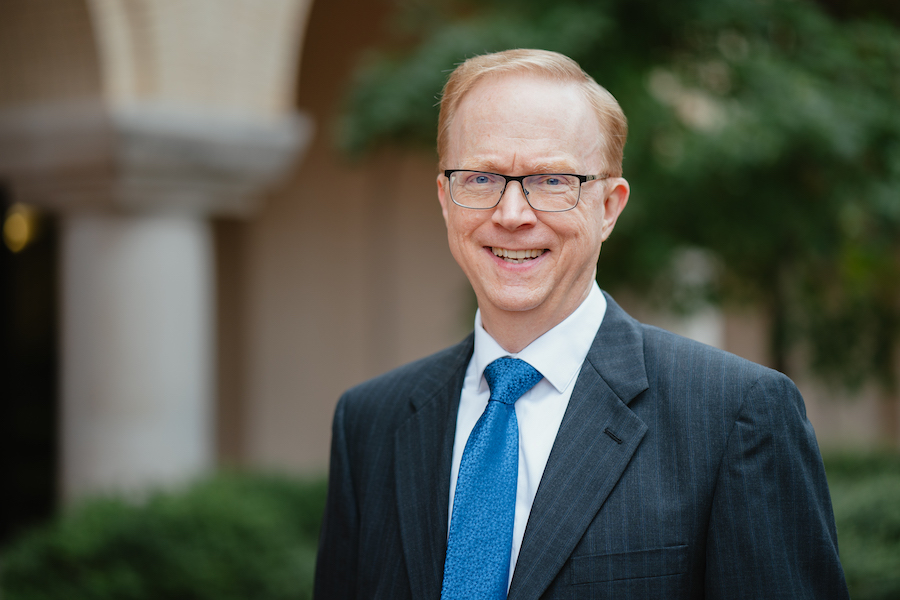
Robert Caldwell presented “Lucifer as ‘King in Hell:’ Jonathan Edwards on the fall of the Angels,” at the annual ETS meeting.
Robert Caldwell II
Robert Caldwell II, professor of church history, presented “Lucifer as ‘King in Hell:’ Jonathan Edwards on the fall of the Angels,” which he said “relates to a small part of a larger project I’m working on; one that will examine Edwards’s understanding of salvation history, which he explores across three worlds: heaven, earth, and hell.”
Caldwell said the paper “examines how Edwards understood one event in the early history of heaven – the fall of the rebellious angels, an event he detailed extensively in his private notebooks.” Caldwell first explores Edwards’s understanding of the creation of angels and their superior status to humankind, then examines “the announcement that God made early after creation,” which charged angels with the task of serving humankind and Jesus Christ. “The announcement sparked pride in Lucifer and other rebellious angels, triggering their fall,” he said.
Finally, Caldwell said, the paper “illuminates the aftermath of the angels’ fall among the obedient angels, who are struck with fear and confined to a state of probation until a much later date when they are ‘confirmed,’ or experience salvation, at the ascension of Christ.”
Caldwell chairs a steering committee at ETS called “Christian History and Thought since 1700.” Each year, he said, they have a session where they invite four presenters related to a theme. This year’s theme centers on Dutch theologian and philosopher Herman Bavinck. “There has been a growing interest in his work in recent years and our committee thought we could showcase some scholars in the ETS community who have been working on him,” Caldwell said.
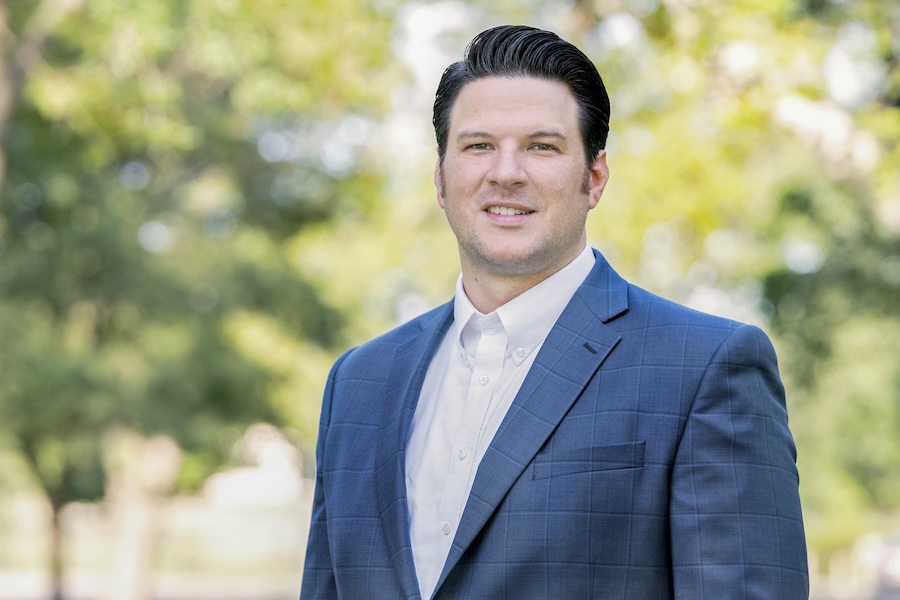
Andrew Streett presented “The Apocalyptic Ambiguity and Revelation of Mark’s Son of Man.”
Andrew Streett
Andrew Streett, associate professor of biblical studies, presented a paper on “The Apocalyptic Ambiguity and Revelation of Mark’s Son of Man,” noting he has “long been interested in the phrase ‘Son of Man’ in the synoptics gospels because it is so mysterious that Jesus seems to refer to Himself in this unusual way.”
The meaning of the phrase and its application to Jesus are “veiled in purposeful ambiguity and misdirection in Jesus’s early public controversies,” he said. “However, in private teaching to apostles, Jesus reveals a bit more, associating the phrase with the apocalyptic concepts of suffering and vindication of the faithful.”
The meaning of the phrase is most fully revealed, both to characters and readers, at Jesus’s trial, “where it is tied strongly to Daniel 7:13 and unambiguously applied to Jesus Himself,” Streett said, adding that Mark’s use of “Son of Man” is “apocalyptic not only in its content but also in its function.”
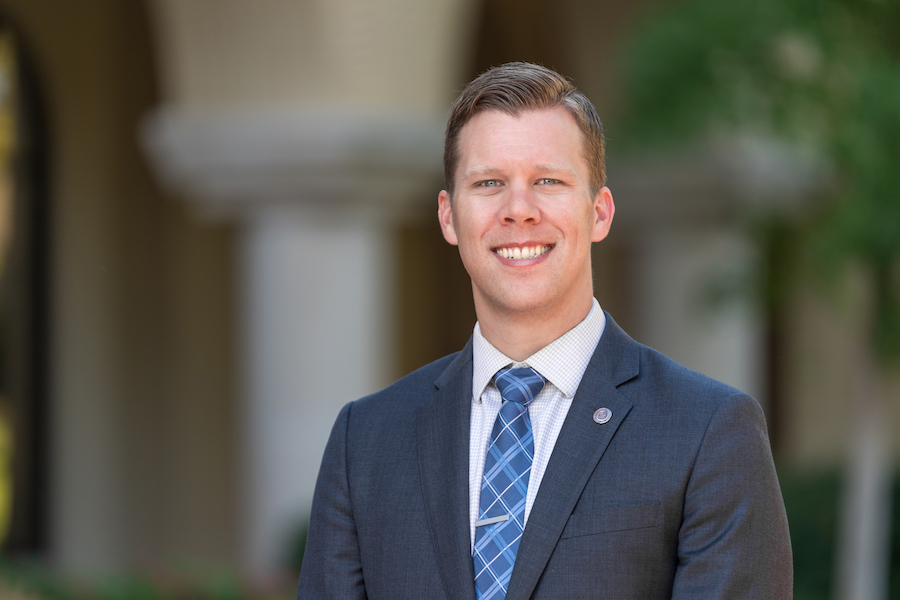
Andrew Jennings served as moderator during a session and presented “A Kripkean Defense for Divine Simplicity.”
Andrew Jennings
In addition to moderating an “Evangelical Philosophical” session, Andrew Jennings, assistant professor of philosophy of religion and apologetics, presented an argument for the doctrine of divine simplicity.
In his presentation, titled “A Kripkean Defense for Divine Simplicity,” Jennings noted that a criticism of that doctrine “says that it would imply the world we live in is the only way reality could have been. Importantly, it would mean that God lacked freedom in His choice of how to create the world.” This criticism relies on a result coming from modal logic, which deals with different logical possibilities, he added.
Jennings contended that the same criticism about reality “could be made regardless of one’s view about God’s nature, simple or not.” He then argued that “the problem of God’s freedom is actually resolved with divine simplicity but remains intact in other views, so divine simplicity is a helpful claim about God rather than a liability.”
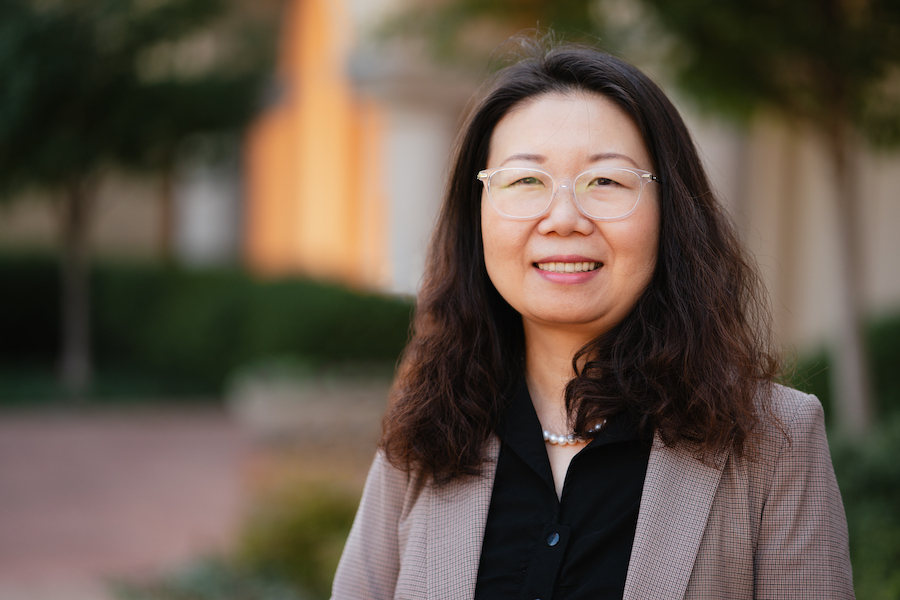
Hongyi Yang presented “The Progressive Decline of the Doctrine of God’s Fatherhood: A Theological Diagnosis.”
Hongyi Yang
The “contemporary phenomenon of ignoring and misunderstanding fatherhood in society and among Christians” inspired Hongyi Yang’s presentation titled “The Progressive Decline of the Doctrine of God’s Fatherhood: A Theological Diagnosis.”
Yang, associate professor of world Christianity and director of Chinese language programs at Southwestern, contended that “in contemporary Christian theology, the doctrine of God the Father and God’s fatherhood has also been neglected.”
In her paper, Yang provided “a theological and historical diagnosis for this particular symptom in the contemporary West,” and demonstrated “the progress of the decline that was originated by the side effects of the pro-Nicene theology and developed in the subsequent generations.”
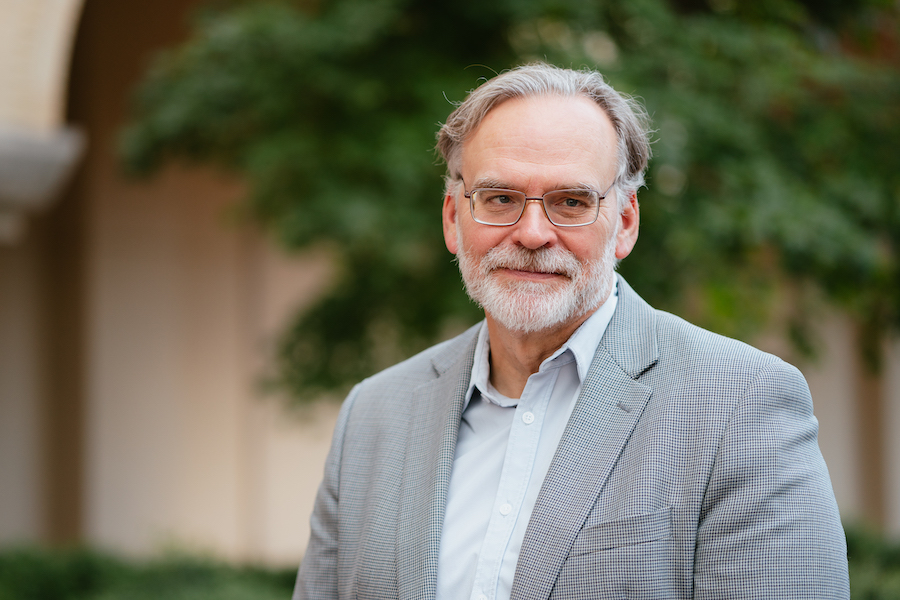
Malcolm Yarnell presented “The Contribution of Roger Williams to Baptists and Religious Liberty: A Reassessment” and “Systematic Theological Reflections on Biblical Counseling.”
Malcolm Yarnell III
In presenting “The Contribution of Roger Williams to Baptists and Religious Liberty: A Reassessment,” Malcolm Yarnell III, research professor of theology, sought to “recapture the God-given genius that prompted him to argue for religious liberty against the persecuting Christian Nationalism of the Massachusetts Bay authorities, who were encouraged in their gross error by John Cotton.” He added that “Baptists especially need to remember the contributions of our forefathers in this day, when there has been a resurgence of Cottonian nationalism.”
Yarnell also presented a paper on “Systematic Theological Reflections on Biblical Counseling,” which evaluated aspects of that movement from a theological perspective and served as one of six moderators for a session titled “Ben Witherington III, Sola Scriptura: Scripture’s Final Authority in the Modern World.” Yarnell said panel organizers asked him to respond to Witherington’s new book because he and SWBTS President David Dockery recently co-wrote Special Revelation and Scripture, a “major text on the doctrine of Scripture,” and edited the revised and expanded edition of the Seminary Hill Press volume, The Authority and Sufficiency of Scripture.
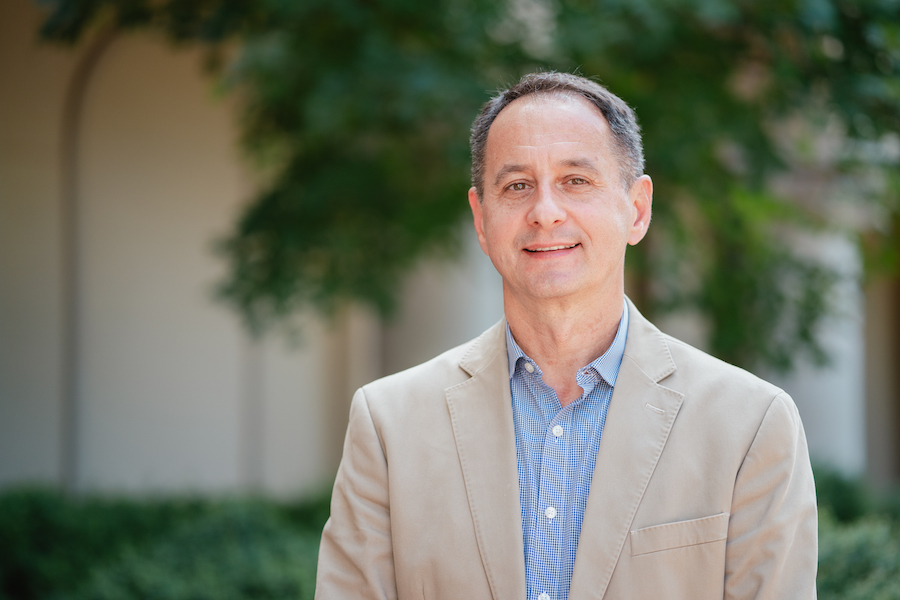
Cristian Rata presented “And Now These Three Remain: Happiness, Holiness, and Hope.”
Cristian Rata
In presenting his paper, “And Now These Three Remain: Happiness, Holiness, and Hope,” Cristian Rata, professor of Old Testament, argued that the three terms (happiness, holiness, and hope) are “foundational and very much related in the Psalter and in life.” The argument starts, he said, by looking closely at the introduction of the Psalter (Psalms 1 and 2), then proceeds to show that “the rest of the book reinforces this important triad.”
Rata said he has a longstanding interest in the Book of Psalms and its use for spiritual formation. He noted that the study is important for two reasons: First, because it “shows that the sages who are responsible for the final editing of the Psalter understood that the innate human desire for happiness is the best motivator for a life [of] holiness, and they also understood that no real happiness is possible without lasting hope.”
Secondly, he said, understanding and seeing the importance of this triad in the Psalter should help teachers and preachers motivate their congregations to make the Psalter foundational for their spiritual life.
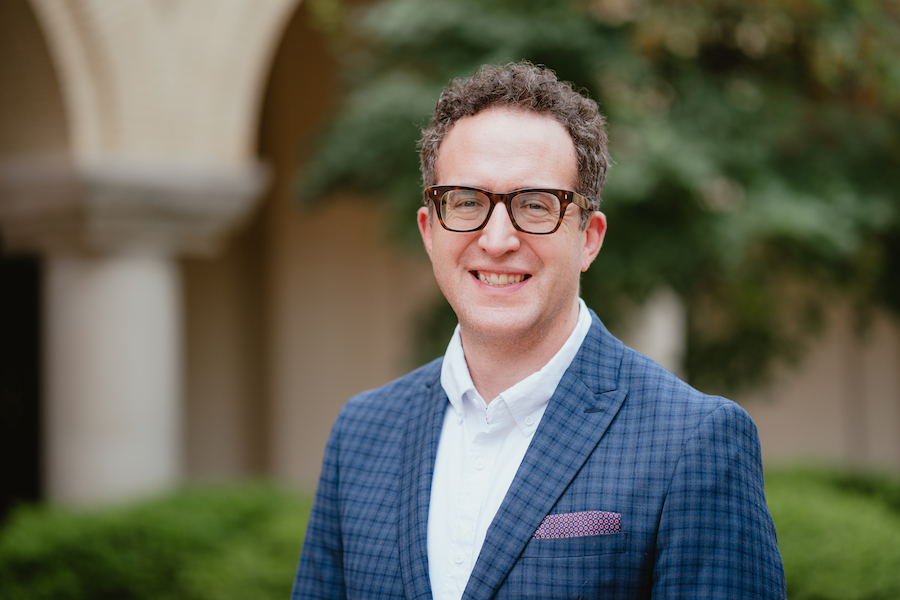
Coleman Ford’s “The Influence of Augustine’s Totus Christus in Protestant Hermeneutics” was accepted by ETS, though he could not present it.
Coleman Ford
A paper by Coleman Ford, assistant professor of humanities at Texas Baptist College (TBC), was accepted for the ETS meeting; however, Ford was unable to attend this year.
In his paper, “The Influence of Augustine’s Totus Christus in Protestant Hermeneutics,” Ford explored Augustine’s interpretation of the Psalms, specifically that the philosopher and theologian “sees both Christ and the church present within the Psalm literature,” he said. This hermeneutical lens has come to be known as the Totus Christus, or “total Christ,” which “allows him to interpret certain Psalms, both prophetically pointing to Christ, also applying to the present struggles and experience of the church, who is the body of Christ.”
In his research, Ford said, he looked at examples within “early Protestant interpreters who interact with this idea from Augustine, as well as nuance his understanding in their own interpretation of the Psalms.”
Presentations
Robert Caldwell II, Lucifer as ‘King in Hell:’ Jonathan Edwards on the Fall of the Angels
Coleman Ford, The Influence of Augustine’s Totus Christus in Protestant Hermeneutics
Andrew Jennings, A Kripkean Defense for Divine Simplicity
Cristian Rata, And Now These Three Remain: Happiness, Holiness, and Hope
Andrew Streett, The Apocalyptic Ambiguity and Revelation of Mark’s ‘Son of Man’
Hongyi Yang, The Progressive Decline of the Doctrine of God’s Fatherhood: A Theological Diagnosis
Malcolm Yarnell III, The Contribution of Roger Williams to Baptists and Religious Liberty: A Reassessment, and Systematic Theological Reflections on Biblical Counseling
Session moderators
Bavinck: History and Retrieval, Robert Caldwell II, moderator
Evangelical Philosophical D1, Andrew Jennings, moderator
Biblical Worship, Joshua Waggener, moderator
Ben Witherington III, Sola Scriptura: Scripture’s Final Authority in the Modern World, Malcolm Yarnell III, moderator
Student and recent graduate presentations
John Paul Arceno, Towards Filipinization: A Southern Baptist Story in the Philippines
James Crockett, Seated at God’s Right Hand: Paul’s Use of Jewish Royal Ideology in Colossians
Hugo Encorrada, Exploring Theological Depth and Congressional Faith Expression in Hymn Lyrics
Eun-Ju Kim, One-Mile-Wide, One-Inch-Deep: The Indigenization of Global Pentecostal Worship in a Yoruba Context
Matthew McCraney, Disability Worship: Evaluating Worship Practices to Welcome Individuals with Disabilities
Seonnghyun (Eric) Park, Sound Theology in Worship Songs: The Formational Power of Lyrics
Daniel Webster, Clement of Alexandria’s Musical Thought: The State of the Question and New Opportunities
Recent graduate moderator
Practical Theology, Matthew McCraney, moderator
